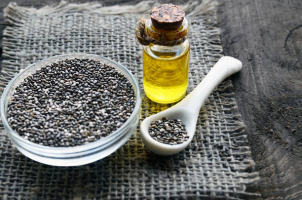Top 5 Health Benefits of Walnut Oil
The healthiest nut in the world is a walnut. They contain more vitamins, minerals, and antioxidants than any other type of nut. Whole walnuts are pressed to ... read more...obtain walnut oil. It has a delicate, nutty flavor and some of the healthy nutrients and ingredients found in walnuts, such as polyphenols and unsaturated fatty acids. The walnut oil advantages that are most promising are highlighted in this article.
-
Walnut oil's nutrients could support healthy skin. The amount of alpha-linolenic acid (ALA), an omega-3 fatty acid, in one tablespoon (13.6 grams) of walnut oil is more than 8 grams, or more than 5 times the Dietary Reference Intake (DRI). The longer omega-3 fatty acids eicosapentaenoic acid (EPA) and docosahexaenoic acid (DHA), which aid in the formation of the structural elements of your skin, are produced by your body from some ALA.
Omega-3s, such as those found in walnut oil, may therefore encourage skin development, combat inflammatory skin conditions, and aid in wound healing. Additionally, walnut oil has significant levels of linoleic acid (LA), an omega-6 fatty acid that predominates in the epidermis of your skin. Simply put, eating walnut oil increases your intake of important fatty acids, which are crucial for maintaining healthy skin.

Can boost skin health 
Can boost skin health -
By including walnut oil in your diet, you may be able to reduce chronic inflammation, which has been related to cancer, heart disease, and other illnesses. A diet rich in ALA, one of the primary fatty acids in walnut oil, was found to reduce the synthesis of inflammatory proteins in the body in a 6-week trial of 23 individuals with high cholesterol. Walnuts are also abundant in ellagitannins, a type of polyphenol that your gut microbes use to create other advantageous substances.
These substances may have anti-inflammatory effects and function as antioxidants to prevent cell damage brought on by free radicals. This may help to explain why research conducted in test tubes has shown that walnut oil can reduce inflammation and boost antioxidant activity in cells. The amount that the advantageous components in walnuts are kept throughout the production of walnut oil is unknown, though. According to some research, walnut oil only contributes 5% of the antioxidant activity of whole walnuts.

May decrease inflammation 
May decrease inflammation -
Consuming walnut oil may help with type 2 diabetes's poor blood sugar management. Uncontrolled blood sugar levels can eventually cause kidney and eye damage, heart disease, and stroke. Consuming foods that reduce blood sugar, such as walnut oil, can help avoid these problems.
Consuming 1 tablespoon (15 grams) of walnut oil daily for 3 months significantly decreased fasting blood sugar and hemoglobin A1c levels, which reflect long-term blood sugar, compared to baseline values, according to one research in 100 persons with type 2 diabetes. The high content of antioxidants in walnut oil, which can aid in the battle against oxidative stress brought on by high blood sugar levels, may be the cause of the favorable benefits of walnut oil on blood sugar management.

Improves blood sugar control 
Improves blood sugar control -
Regular consumption of walnuts may reduce high triglyceride, total, and LDL (bad) cholesterol levels in the blood, which otherwise raise the risk of heart disease. This could be because walnuts contain large amounts of antioxidants and omega-3 fatty acids, both of which are also present in walnut oil.
One study demonstrated that taking a daily capsule containing 3 grams of walnut oil for 45 days significantly reduced blood levels of triglycerides relative to baseline values in 60 persons with high triglyceride levels. Based on these findings, consuming walnut oil may help lower your chance of developing heart disease, but additional study is required.

Improves cholesterol levels 
Improves cholesterol levels -
The alpha-linolenic acid, an omega-3 fatty acid, makes up the majority of the fat in walnut oil. When included in your regular diet, this "healthy fat" can cut your risk of heart disease by 10%. The reason for this, according to scientists, is that omega-3 fatty acids can reduce cholesterol levels, therefore maintaining the health and function of your arteries.
Additionally, walnuts lower triglyceride levels, a kind of fat linked to an increased risk of heart disease, heart attacks, and stroke. According to one research, walnut oil can even help the body cope with stress by regulating blood pressure and easing the load on the heart. One of the major risk factors for heart disease is excessive blood pressure, which walnut oil may help reduce. Studies indicate that eating a lot of whole walnuts may help decrease blood pressure. This is probably because entire walnuts contain a lot of ALA, LA, and polyphenols. Given that walnut oil contains a lot of these substances as well, it could have comparable benefits.

Good for heart health 
Good for heart health


























